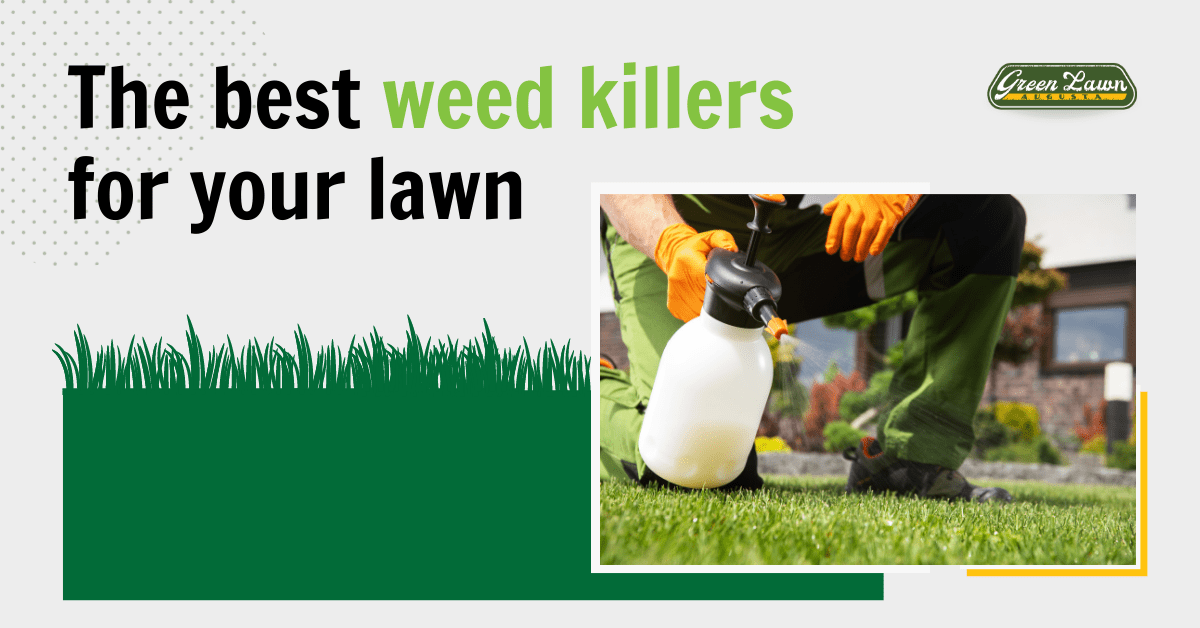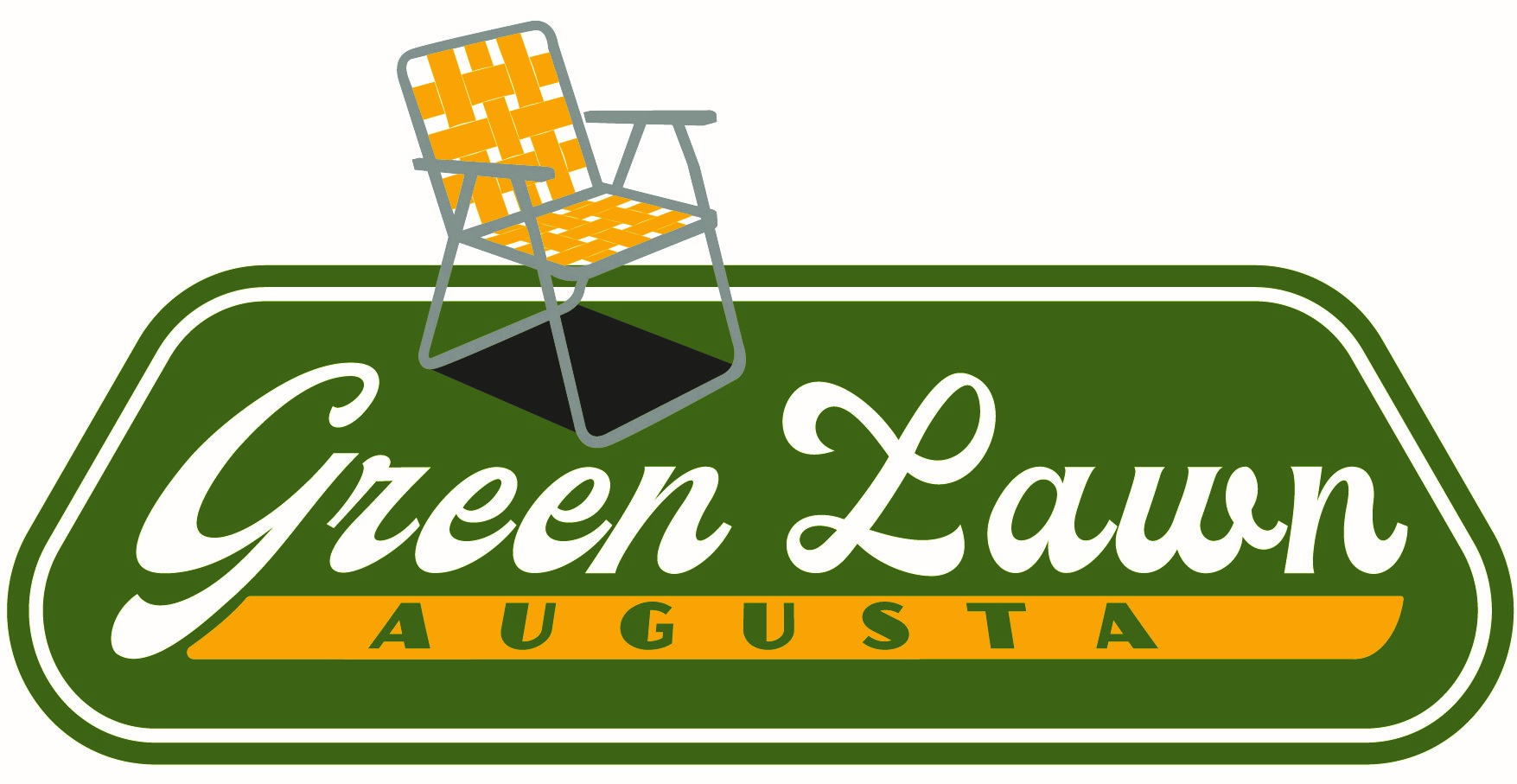The best weed killers for lawns are selective herbicides.
The best weed killers for your lawn will depend on the type of weeds that you have and the type of grass that you have. If you have a broadleaf weed problem, then you will need a weed killer that is specifically designed for broadleaf weeds. If you have grassy weeds, then you will need a weed killer that is designed for grassy weeds.
Table of Contents
ToggleThe three main types of weed killers
Some weed killers are effective against both broadleaf weeds and grassy weeds. Be sure to read the label on the weed killer to make sure that it is safe to use on your lawn.
- Selective weed killer only kills certain types of plants.
- Non-selective weed killers will kill any type of plant that they come into contact with.
- Pre-emergent weed killers are applied before weeds have a chance to grow, and they work by preventing weed seeds from germinating.
Need help applying the right treatment? Explore our local Augusta weed control services to keep your lawn in peak condition.
Fertilizer & Weed Prevention
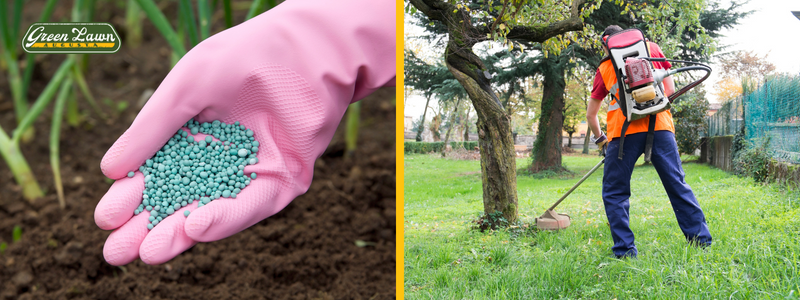
When it comes to weed prevention, there is no one-size-fits-all solution. The best fertilizer for weed prevention depends on the type of pesky weeds you’re trying to prevent, as well as the climate and soil conditions in your lawn or garden. However, there are a few general tips that can help you choose the best fertilizer for weed prevention.
- First, consider using a slow-release fertilizer. These types of fertilizers release nutrients gradually over a period of weeks or months. This ensures that your plants have a steady supply of nutrients without being overloaded.
- Second, choose a fertilizer with a high nitrogen content. Nitrogen is an essential nutrient for plant growth, and it helps to promote strong root growth. This is important for preventing weed growth, as strong roots help to compete with weeds for water and nutrients.
- Finally, make sure to follow the manufacturer’s instructions carefully. Overdosing on fertilizer can damage your plants and harm the environment. By following these tips, you can choose the best fertilizer for weed prevention in your garden.
Want to get your timing just right? Check out our guide on when to fertilize your lawn in Augusta, GA.
Weed & Feed
Weed and feed is a type of fertilizer that contains both herbicide and fertilizer. The herbicide kills unwanted weeds, while the fertilizer helps to promote growth in your lawn. Weed and feed are typically applied in the spring when weeds are most active. However, some products can be applied year-round.
When choosing a weed and feed product, it’s important to choose one that is specifically designed for your lawn type. For example, if you have a fescue lawn, you’ll want to choose a product that is labeled “for fescue.” It’s also important to read the label carefully to make sure that the product you select is safe for your type of grass.
No matter which product you choose, remember to read the label carefully and follow all instructions. With proper care and treatment, you can have a healthy, weed-free lawn all season long!
Note: Be cautious applying weed and feed after aeration. For best timing, check our full guide on lawn aeration in Augusta.
Pre-Emergent
There are many different types of pre-emergent on the market, but not all of them are created equal. Some pre-emergent are more effective than others, and some are better suited for certain types of plants. When choosing a pre-emergent, it is important to select one that is appropriate for the type of plants you want to protect. Here are some of the best pre-emergent on the market:
- Dimethenamid-P: This is a broad-spectrum herbicide that is effective against most annual grasses and broadleaf weeds. It is also safe for use around most ornamentals.
- Glyphosate: Glyphosate is a non-selective herbicide that kills most types of plants. It is particularly effective against perennials and taproots. Glyphosate is also safe for use around most ornamentals.
- Imazapyr: This herbicide is effective against all types of plants, including trees and shrubs. It is also safe for use around most ornamentals.
When selecting a pre-emergent, it is important to choose one that is appropriate for the type of plants you want to protect. The three herbicides listed above are some of the best on the market and are safe for use around most ornamentals.
Natural weed killer
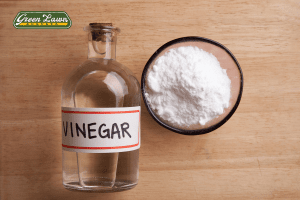
To discover the best natural weed and grass killer, we considered the different weed control needs of homeowners. Some of the best natural weed killers include vinegar, salt, and soap.
- Vinegar is an acetic acid that can kill weeds. It is a non-selective herbicide, which means it will kill any plant it comes in contact with.
- Salt is also a non-selective herbicide and will kill any plant it comes in contact with. Soap is a selective herbicide and will only kill the plants it comes in contact with. Looking for safe solutions for pets? Don’t miss our guide on pet safe lawn care tips.
Organic Weed Killer
Organic weed killers are made with natural ingredients that are safe for people, pets, and the environment. They work by either killing the weed directly or by preventing it from growing. Many organic weed killers also contain ingredients that help to nourish the soil, making it healthier and more resilient to weeds.
Some of the best organic weed killers contain vinegar, lemon juice, salt, and soap. These ingredients are all safe for people and pets, and they can be very effective at killing weeds.
However, it is important to remember that organic weed killers will not work instantaneously. It may take several days or weeks for the weed to die off completely. But when used correctly, organic weed killers can be a very effective way to control weeds in your garden.
Choosing The Best Weed Killer
It depends on what type of weed killer you pick. The choices are also influenced by the type of grass they can eliminate, the effect on nearby trees, the time it takes for them to be eradicated, and the amount of time it takes for them to get rid of it.
Even weed killer that has been tested may have product failure – thus, a lingering weed. To maximize product performance and minimize the risk of herbicide failure, consider the types of weed killer they need to attack and other properties when selecting commercial weed killer.
Before applying anything, consider:
Type of weed (grassy, broadleaf, perennial)
Type of grass (not sure? Read our How to choose the right grass type for your soil)
Time of year and weather
Proximity to gardens or pets
Still unsure? Let our Evans, GA lawn care experts help you select and apply the perfect treatment plan.
Weed Killer for Vegetable Gardens
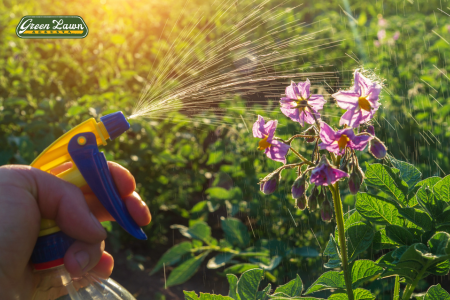
Weed Killer for Vegetable Gardens works by killing the weeds that are growing in your vegetable garden. This is important because weeds can compete with your vegetables for water and nutrients, and they can also harbor pests and diseases that can harm your plants.
There are many different types of weed killers on the market, but not all of them are created equal. When choosing a weed killer for your garden, it is important to choose one that is specifically designed for use in vegetable gardens. Otherwise, you run the risk of harming your plants.
Best Weed Killer for Vegetable Gardens work by using ingredients that are safe for vegetables while still being effective at killing weeds. This means that you can keep your garden free of weeds without worrying about harming your plants.
Skip chemical herbicides near vegetables. Use these methods instead:
Mulch barriers to smother weeds
Spot-treat with organic products
Manual pulling combined with good soil nutrition
Need new turf after weed damage? Learn more about our expert sod installation in Augusta.
Commercial Weed Killer
The Best Weed Killer for Lawns are products that kill weeds without harming the grass. Most lawn weed killers contain herbicides that selectively target weeds. The best time to apply a lawn treatment service is early in the morning or late in the day when the sun is not as strong.
Water the lawn before applying the weed killer so that the herbicide can penetrate the weed’s leaves. Be sure to read the label carefully and follow the instructions for best results.
For stubborn weeds, you may need to reapply the weed killer several times before they are finally eliminated. With a little persistence, you can have a beautiful, weed-free lawn.
Best crabgrass killer
Drive XLR8 is a great post-emergent weed killer using Quinclorac active ingredients. This is an effective way to kill crabgrass. It will eliminate weeds, but highly recommended for crabgrass, especially at a new stage.
Post-emergent weed killer is most useful for spraying specific weeds. Several types of grass, such as St. Augustine, aren’t suited for the use of quinclorac. Check the label before you apply liquid weed killer to control weeds.
Best Weed Killer for Pavement and Concrete
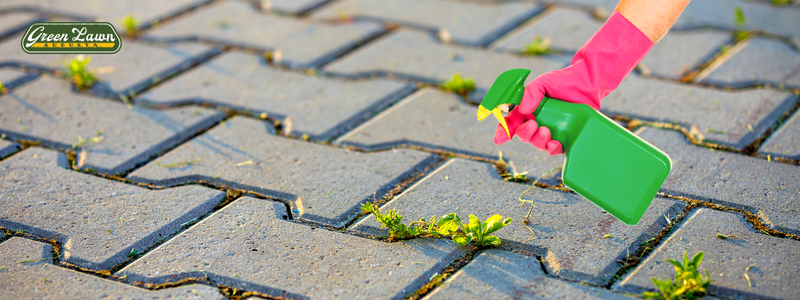
Although concrete is a very durable material, it is not immune to the ravages of weather and time. Over time, cracks can form in the pavement, allowing weeds and grasses to take root.
Not only do these plants damage the pavement, but they can also create trip hazards for pedestrians. The best way to prevent this type of damage is to use a weed killer that is specifically designed for pavement.
These products contain chemicals that target the roots of plants, killing them without damaging the concrete. In addition, they often come in convenient spray bottles, making it easy to apply the product to cracks and crevices.
By using a pavement-specific weed killer, you can help keep your sidewalk or driveway in good condition for years to come.
Pre Emergent versus Post Emergent Herbicides
Pre Emergent herbicides kill weeds before they have a chance to emerge from the soil, while post-emergent herbicides kill weeds that have already emerged. Both types of herbicides will kill existing weeds but have some advantages depending on the grass species.
First, they are preventative, so they can kill common weeds before they become a problem. Second, they are often more effective at killing young weeds before they have a chance to mature and produce seeds.
Finally, pre-emergence typically lasts longer in the environment than post-emergent herbicides, so they can provide long-term weed control. However, post-emergent herbicides do have some advantages as well. They are more effective at killing established weeds, and they can be used to target specific weed species.
In general, pre-emergent herbicides are the best choice for preventing new weed growth, while post-emergent herbicides are best for killing existing weed populations.
Weed Killer for Flower Beds
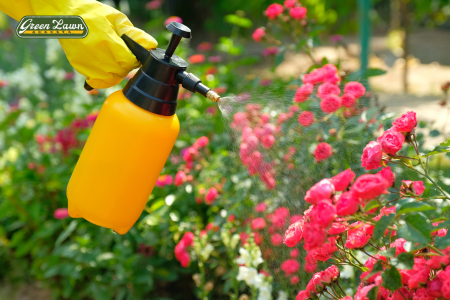
The best weed killers for flower beds are those that are non-selective herbicides. They are the best weed and grass killer concentrate for flower beds. This means that they will kill any plant that they come into contact with, including the weeds you are trying to get rid of. There are several different types of nonselective herbicides available, so be sure to choose the one that is best suited to your needs.
Non-Selective Weed Killer
RoundUp has been the most used weed killer for commercial and home use. It has two active substances (glyphosate and diquat) that can help improve burnability. The non-selective herbicide kills weeds like wood brush, grass weeds, and broadleaf weeds. Rain usually won’t wash it if it dries fast.
Selective vs. Non-Selective Weed Killers
The selectively targeted weed killers kill plants by simply removing surrounding vegetation that’s not contaminated with pesticides. The best weed killers for your lawn weeding. Non-selectively-killed vegetation will kill the entire species within the region. This herbicide is excellent for areas without desired plants, including driveways and sidewalks.
DIY Your Own Weed Killer
Before commercial weed killers became widely available, many people relied upon home remedies to remove weeds. Many of these products have been successfully used today, and many of them are non-toxic, eco-friendly, and natural remedies. Some are more widely used, such as vinegar.
Our Verdict
The weed killer has many advantages for removing unwanted weed and other diseases, and they are also the most effective pre-avoidable solution for most yards. Whether it’s weedy or invasive, we pick this as our favorite weed killer for emergency conditions.
Even if you select the right weed killer, applying it incorrectly can make your efforts fruitless, and the wrong application can cause complications. Most weed killer needs to be diluted with water and put in a spray bottle. The product’s label will explain precisely how much water and weed killer you’ll need to combine. Contact Green Lawn Lawn Treatment Company in Augusta, Ga company in Augusta, Ga for the best services for you lawns needs and questions.
FAQ
What is the best way to kill the unwanted grass that has fallen from your driveway?
The most effective way to kill the unwanted grass that has fallen from your driveway is to use a weed killer. There are many different types of weed killers available, so it is important to select one that is specifically designed for killing grass. Apply the weed killer to the grass and allow it to soak in for a few minutes before rinsing it away with water.
Tell me the best weed killer for driveways.
Although a lot of weed grows around our driveways, the best weed killers are those that remove any plants that grow and remove any new growth that can create a crack or cause an infestation. It’s important to have pre-emergent as well as post-emergency to eradicate weeds.
Are weed killers harmful to humans and animals?
Some of the weedkilling agents are toxic to human health or animal health. Many weed killers can cause health risks for humans and animals unless they follow the safety guidelines in accordance with the label.
Are natural weed killers effective?
Natural weed killers work by destroying the roots of plants and helping eliminate annual weeds. Because persistent weeds have roots they may grow back after treatment.
What is a weed killer that will not kill grass?
A 24-D is a fast-acting weed killer that doesn’t kill grass. A fast-acting selective herbicide that kills existing weeds and will not damage the grass. It’s a good and effective weed killer for broadleaf weed control. Properly mix and apply weed killer on the grass to kill invasive weeds without harming your lush green grass or other plants.
Post Emergent weed killers are applied to the leaves after the plant emerges. These are the most effective weed killers and are best used before the entire plant is mature and just as it begins to grow.
What weed killer do professionals use?
Professionals usually prefer to use contact weed killers because they work more quickly and are less likely to harm nearby plants.
Systemic weed killers can be more effective at killing deep-rooted weeds. When choosing different weed killers, it is important to consider the type of weeds you are dealing with and whether contact or systemic will be more effective.
What is the most effective weed killer?
Chemical weed killers are the best weed killer spray. A good choice if you want to prevent weeds from growing in the first place. The best selective weed killer works by killing the root of the weed, so it can’t grow back. They can be effective at preventing both annual and perennial weeds, such as ground ivy and clover weeds.
Liquid weed killers can also harm your soil, so it’s important to read the labels carefully and follow the directions exactly. Too many of these products can damage your lawn or garden.
What kills weeds permanently?
Vinegar kills weeds permanently. To eradicate any vegetation on the sidewalk or other areas where there can’t be any life to continue growing in a new place, use 2 cups standard table salt and 1 gallon white vinegar. Use containers bigger than 1 gallon to allow for more salt storage.

